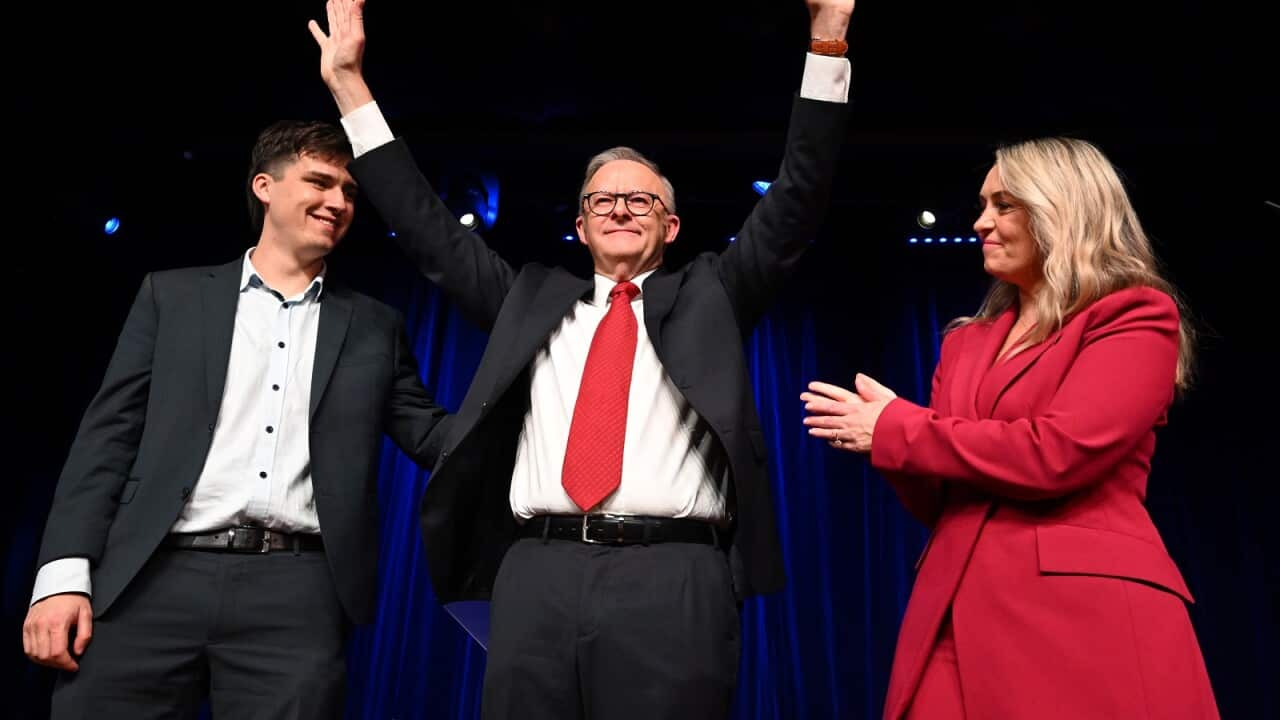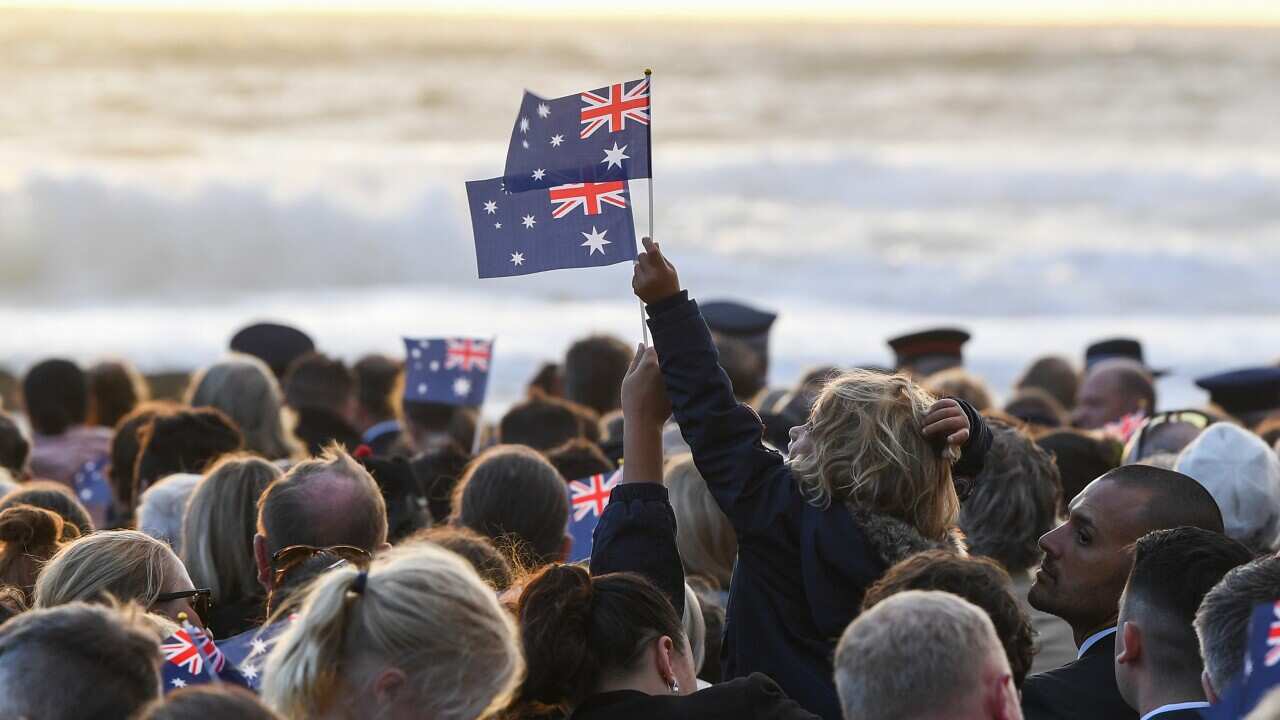TRANSCRIPT
It has been a week since Donald Trump upended the global trade system by announcing steep country-specific tariffs as high as 50 per cent for 57 nations.
But less than 24 hours after they came into effect, he used a post on social media to announce an abrupt reversal in policy: a 90-day pause on those tariffs, with a lower 10 per cent tariff to be applied as negotiations continue.
The announcement caught people by surprise, including the US Trade Representative Jamieson Greer, who was in the middle of a hearing [[before the House Ways and Means Committee]], facing questions from Democratic Representative Steven Horsford on the country's trade strategy.
Greer: "I understand it is 90 days. I haven't spoken to the President..."
Horsford: "So the trade representative hasn't spoken to the President of the United States about a global reordering of trade."
Greer: "Yes, I have. I have just been in a meeting with you - "
Horsford: "And yet he (Donald Trump) announced it on a tweet – WTF, who is in charge?"
Greer: "The President of the United States is in charge."
Horsford: "And what do you know about those details?"
Greer: "As I mentioned..."
Horsford: "It looks like your boss just pulled the rug out from under you.”
Stock markets around the world rallied on the news of the tariff pause, with the S&P 500 posting its best day since October 2008. The Australian sharemarket soared as much as 6 per cent.
It marks a turn for the better for investors, after the most intense period of financial market volatility in five years, since the pandemic.
Client portfolio manager at Zacks Investment Management, Brian Mulberry says it is a welcome correction.
“And the best way I can summarise it is just the difference between certainty and uncertainty. When we have maximum tariff pressure for a maximum period of time, the range of outcomes on individual businesses as well as consumers starts to become less certain. That uncertainty creates the wall of worry. Are we in a growth scare? Are we facing a recession? There's so many possible outcomes, the negative sentiment pulls the value of the market down. With a 90-day pause in tariffs, now we only have to deal with basically a 10% baseline tariff. That creates a much more certain outcome in terms of the cost of goods, what trade will look like, and obviously much less of an impact on consumers.”
After days of insisting he would not be backing down, President Trump admits what's called the market jitters - seen in the sustained volatility on financial markets - did play a big role in his decision-making.
“People were jumping a little bit out of life. They were getting yippy, afraid. Look, nothing is over yet. But we have a tremendous amount of spirit from other countries including China. China wants to make a deal. They just don't know how quite to go about it. So there is one of those things - they're quite proud people.”
The only country to be excluded from the pause on tariffs is China.
Mr Trump says the tariff on imported Chinese goods will now be increased by a further 21 per cent - to 125 per cent, saying China has shown a "lack of respect" by responding to the US tariffs with a 84 per cent levy on US imports.
“Sometimes you have to be able to go under the wall, around the wall - or over the wall. So I think in financial markets - because they change. Look at how much it changed today. It went from pretty moderate today. But over the last few days it looked pretty glum, to I guess, I say it was the biggest day in financial history. That is a pretty big change. And I think the word would be flexible. You have to be flexible.”
Whether China will increase its tariffs even further - remains to be seen.
China has taken the toughest approach so far to the US tariffs, but a number of countries are evaluating their own responses and have promised more retaliation.
The European Union has approved tariffs to hit about A$38 billion (21 billion euros) of US goods in retaliation for the 25 per cent duties imposed by the US last month on the bloc's steel and aluminium exports.
The World Trade Organization says trade tensions between the world's two largest economies, the US and China, could lead to a long-term reduction in global real GDP by nearly 7 per cent.
It also says that could see the trade of goods between the two economies reduce by as much as 80 per cent.
US Treasury Secretary Scott Bessent says this is not economic warfare.
“Well, I'm not calling it a trade war. But I am saying that China has escalated. And President Trump has responded very courageously to that. And we are going to work on a solution with our trading partners.”
He says it was Mr Trump's strategy all along to not have the tariffs as announced to be permanent, but rather create the opportunity for new trade negotiations.
“This was driven by the President's strategy. He and I had a long talk on Sunday. And this was his strategy all along. You might even say that he goaded (provoked) China into a bad position. They have responded. They have shown themselves to the world to be the bad actor. And we are willing to co-operate with our allies and with our trading partners who did not retaliate.”
The Trump administration says the 90-day pause does not impact tariffs already imposed, such as those on steel and aluminium - and Mr Trump indicated there will be come to come on sectors like pharmaceuticals and lumbar.
The US tariff situation for Australia remains unchanged by the pause.
A so-called baseline 10 per cent tariff came into effect at the weekend.
Australia's Deputy Prime Minister, Richard Marles, says the federal government is continuing to make the case to be exempt from the tariffs.













